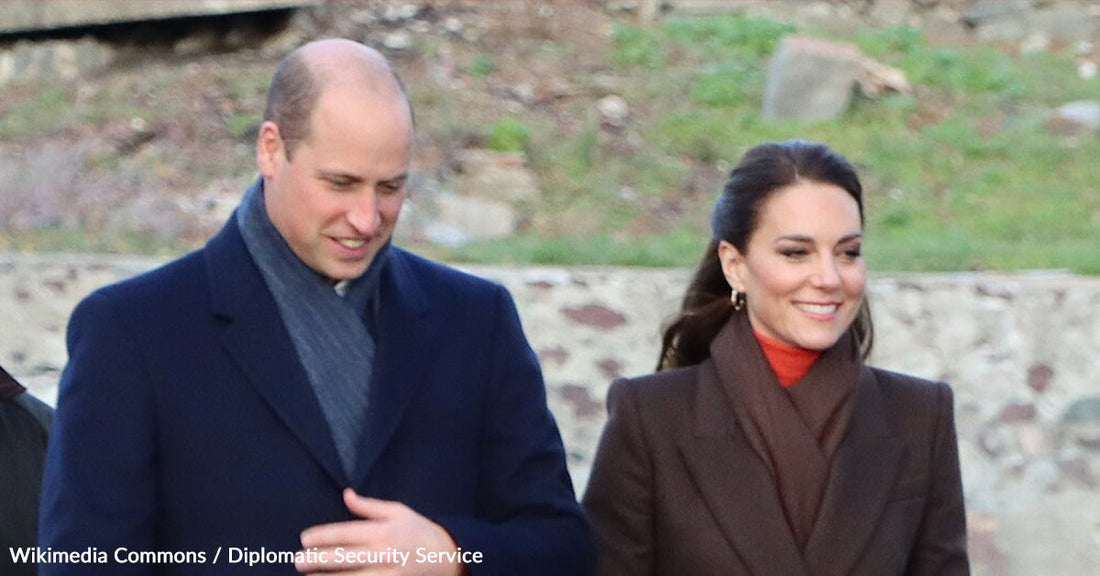Prince William and Kate Face Backlash for Puppy Litter Amid Shelter Crisis
Matthew Russell
A birthday photo intended to share a moment of joy has become the center of a heated international debate.
A portrait of Prince William with his dog Orla and three of her newborn puppies appeared on the official Kensington Palace Instagram page. Taken by Princess Catherine in Windsor, the image was captioned with warm greetings from the family: “Happy birthday! Love C, G, C, L, Orla and the puppies!” But the public reception wasn’t entirely celebratory. The photo ignited fierce criticism from animal welfare advocates who say the royals have missed an important opportunity to set a compassionate example.
PETA Calls Out the Royal Couple
People for the Ethical Treatment of Animals (PETA) was quick to condemn the decision to breed Orla, labeling it “staggeringly out of touch” with today’s animal welfare crisis. Elisa Allen, PETA’s Vice President of Programs and Operations, stated that "shelters here and worldwide are overflowing with puppies desperate for a second chance at a loving home" and accused the couple of “churning out a litter” instead of adopting like other royals have done, The Independent reports.
Allen pointed to King Charles and Queen Camilla’s decision to adopt a rescue dog named Moley from Battersea Dogs and Cats Home as a model of leadership. Both of Camilla’s previous dogs were rescues as well, making their household a consistent symbol of adopting over shopping.

Photo: Wikimedia Commons / Office of U.S. Ambassador to U.K., License: Public Domain
Critics called the royal couple’s actions tone-deaf and irresponsible.
Defenders Say the Criticism Went Too Far
However, many were quick to defend the Prince and Princess of Wales. Critics of PETA described the group as “extremists,” accusing them of leveraging the royal family's personal choices for publicity. According to the Daily Mail, former Conservative MSP Brian Monteith called the timing “disgusting,” noting that Princess Catherine is currently undergoing cancer treatment. He argued that allowing the dog to have puppies was a family decision made in private, not a policy statement.
Royal commentator Lady Colin Campbell, writing on X, defended the couple, saying, “What a world we live in. Doctrinaire fanatics refuse to acknowledge that they do their cause more harm than good by trying to bully people for making perfectly reasonable and acceptable choices.”

Photo: Wikimedia Commons / Diplomatic Security Service, License: Public Domain
Some believe public figures should promote adoption first.
Experts Offer Nuanced Perspectives
Veterinary professionals took a more balanced stance. A vet nurse from the PDSA acknowledged that while adoption is ideal, responsible breeding has its place. “Where a puppy is born and raised has a huge impact on their future health and happiness,” she told the Daily Mail. The key, she said, is ensuring breeders are responsible and committed to the lifelong welfare of their animals.
Similarly, a Dogs Trust spokesperson said that while they encourage adoption, “some people will choose to buy a puppy,” and emphasized the need for transparency and ethical breeding practices.
PETA maintains that their goal is to reduce animal suffering and insists that their interventions are designed to inform the public. Their statement reiterated that educating people about ethical choices in pet care remains a cornerstone of their mission.

Photo: Wikimedia Commons / Paul Townley, License: Public Domain
The backlash reignited debate about rescue versus breeding.
Royal Dogs and Public Debate
The Prince and Princess of Wales have had Orla since 2020, following the death of their previous dog, Lupo. Orla, herself a descendant of a line of dogs bred by Kate’s brother James Middleton, recently gave birth to four puppies. The family reportedly plans to keep one of them.
Though the debate over the photo continues, the incident reflects a larger conversation about pet adoption, responsible breeding, and the symbolic power of public figures. Whether the royal couple’s decision was right or wrong remains a matter of personal interpretation—but the response has made one thing clear: in a world grappling with animal overpopulation, every choice sends a message.

